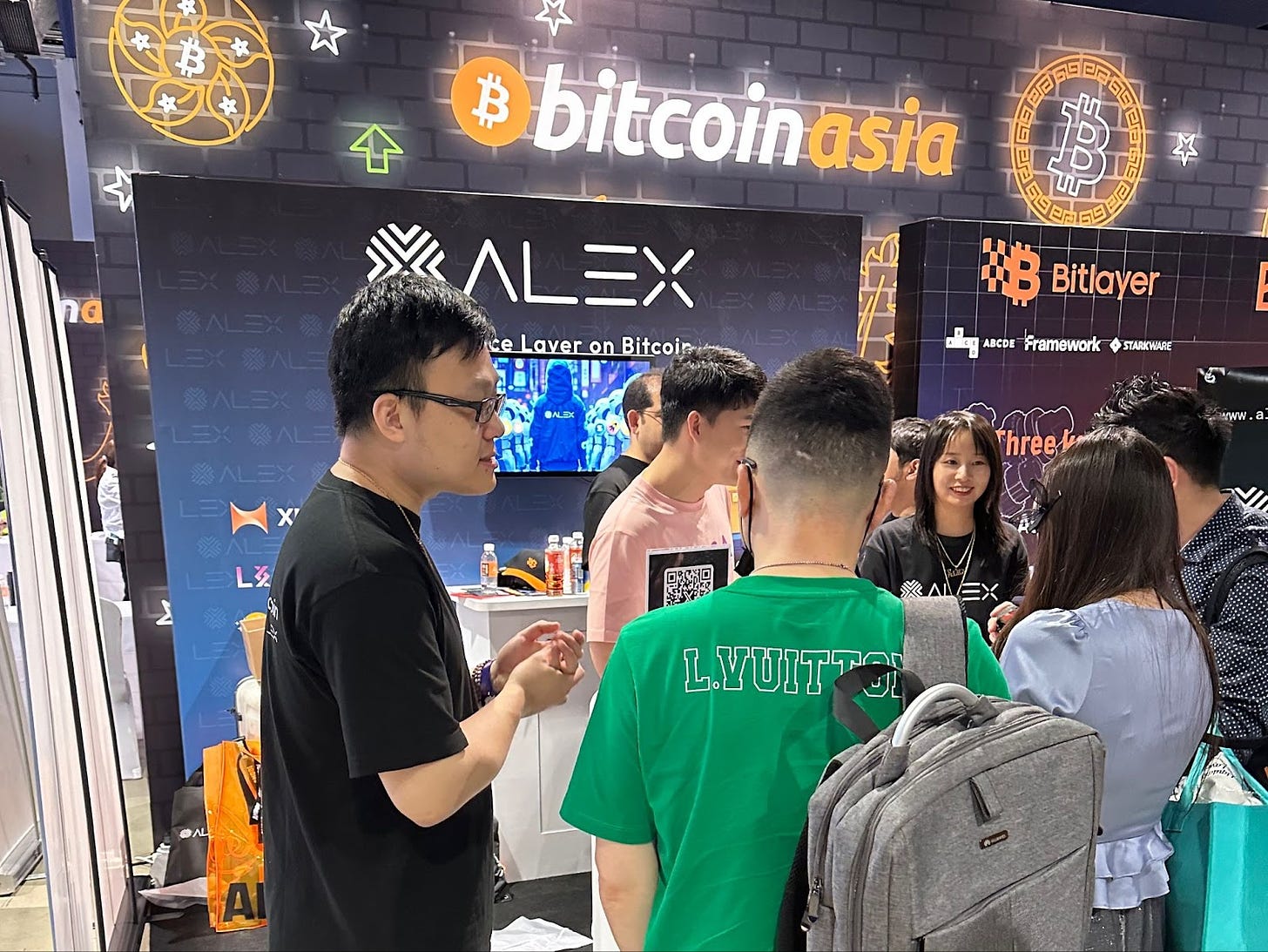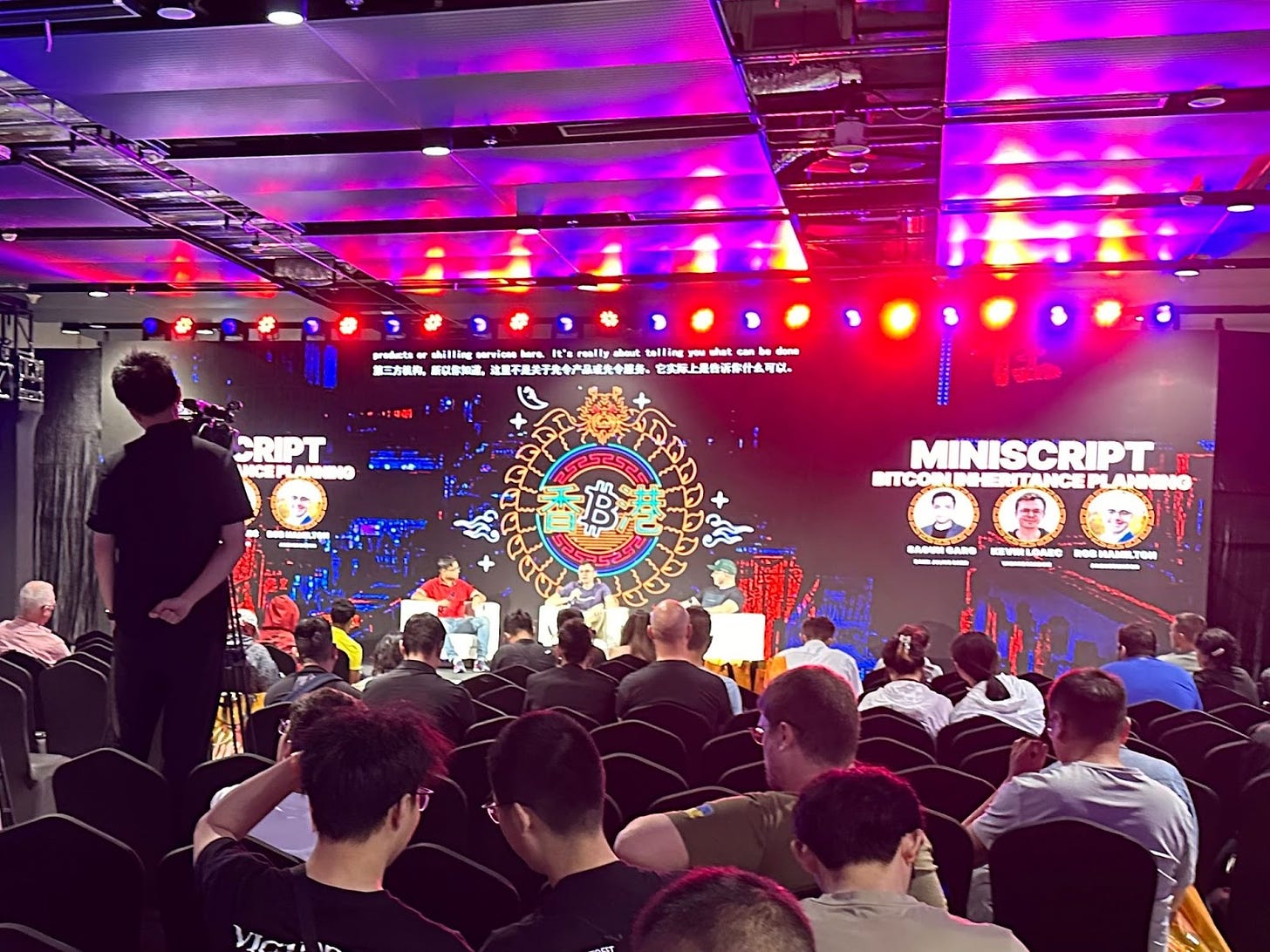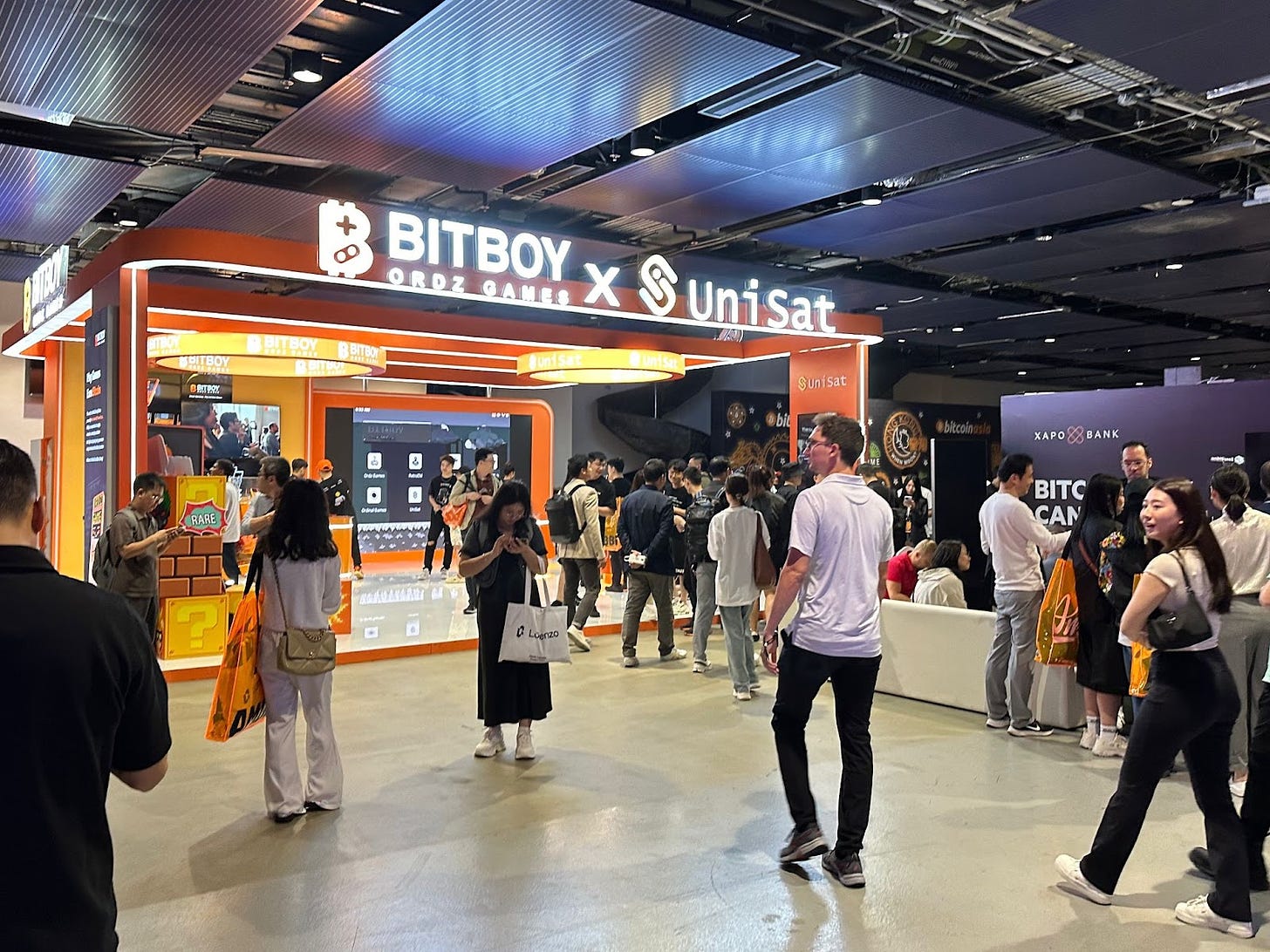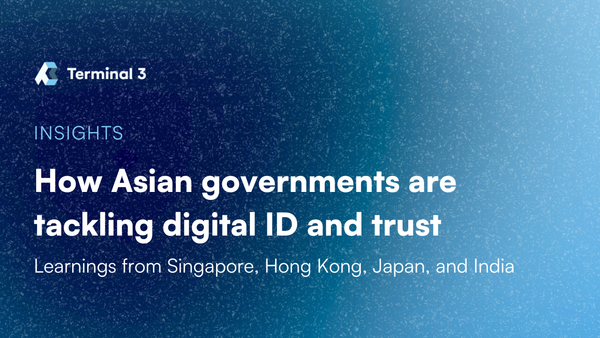Here’s what we learned from the first Bitcoin Asia event

GM,
Bitcoin continues to be the story of Web3 this year, so you know we had to attend the inaugural Bitcoin Asia event which took place on SO WHAT’s home turf in Hong Kong.
We spent the week at side events, dinners, drink meetups, breakfasts and, of course, the show itself.
Let’s dive in.
Best,
What’s going on?
It has taken a while, but last week saw Bitcoin Magazine finally host its first event in Asia. Bitcoin Asia ran for two days in Hong Kong and was said to have attracted more than 5,500 attendees with a raft of sponsors and more than a dozen side events, as is common in the Web3 space.
Next year’s event has already been announced. Is it worth attending? That’s for you to decide, but our takeaways from the event may help you make your mind up.
SO WHAT?
1. Bitcoin suddenly has a thriving ecosystem
We’ve written extensively about the development around Bitcoin and its ecosystem over the past year. The introduction of Ordinals enabled NFTs (and more) on the Bitcoin blockchain, and that was followed by the addition of Runes (and thereby memecoins) this year.
This type of “fun”—as one of the creators of Ordinals and Runes refers to his introductions—was inconceivable over a year ago. While we read about developments online and dabble in trading or owning, events bring us face-to-face with some of the projects that are actually building and developing these new services.
Bigger projects exhibiting at the show focused on infrastructure and included Alex—a Bitcoin DeFi protocol that recently raised $10M, Bitcoin layer-2 Bitlayer—recently valued around $200M, and wallets such as UniSat. The long tail of Bitcoin-focused projects included younger and more riskier projects developing games or NFT collections etc. It showed that Bitcoin has a vibrant ecosystem which also includes very young businesses. As one well connected Web3 investor told SO WHAT, “it’s an entirely different ecosystem… and I know nobody.”

Bitcoin is no longer Boomer Coin, it is its own planetary system like the rest of Web3. That comes with good and bad.
2. It’s the miners, stupid!
“The economy, stupid” was an internal memo for Bill Clinton’s successful Presidential campaign which reminded the team that, ultimately, people are happy when the economy is good. In Bitcoin, miners are the understated and often-unseen layer that power the Bitcoin economy.
Mining is a tough vocation that is at the mercy of Bitcoin pricing trends. When things go well, mining is profitable but equipment is expensive and hard to get hold of. When prices tank, so mining becomes less sexy as the rewards and demand are lower. Either way, mining is essential to Bitcoin.

The current situation for mining is tough. The recent halving just reduced the economic incentive for mining and, while it has been talked about—including in this newsletter—it isn’t discussed enough given that mining quite literally powers Bitcoin.
Bitcoin Asia had a series of interviews and panels around the business of mining. While not as sexy as Bitcoin layer-2 networks, Ordinals or ETFs, the current state of mining is as fascinating as it gets. The economic impact of the halving is likely to mean consolidation in the space, and there are more than a dozen publicly listed mining companies.
There was also discussion of the impact of Ordinals and Runes, the former of which we previously noted has generated more than $100M in additional (read: new) revenue for miners. Together, Ordinals and Runes will revolutionize Bitcoin mining and that is a huge deal.
3. China still looms large
One major, unavoidable takeaway from the event were the links to China. More than half of the event attendees were said to have come from the Mainland, and that included the founders of a number of projects.
Bitcoin is the OG cryptocurrency and, despite China banning exchanges, trading and even mining, the industry generally acknowledges that China remains obsessed with The Orange Coin. Hong Kong’s recently introduced ETFs are a testament to that, but Bitcoin fever runs far, far deeper.
At Bitcoin Asia, SO WHAT bumped into marketing agencies, KOLs, traders and of course Bitcoin startups originating from (and sometimes still living in) China. Clearly, living in China and making a living from Web3 has never been more difficult and Hong Kong’s move to embrace the industry has certainly aided some Mainland Chinese.

TechCrunch reported that Hong Kong’s recent Web3 summit, held in April, attracted a noticeably international crowd that went beyond the predominantly China-focused appeal of previous years’ events. International companies such as Aptos, Dydx and Telegram-affiliated TON are, it reported, making use of Hong Kong as a gateway to tapping China.
There’s belief that it will stand them in good stead if and when China does open to crypto again. Beyond Hong Kong’s 7 million population, they can run hackathons and other events there or even neighboring Shenzhen to take advantage of Chinese developers and other talents.
Proximity to China still feels like Hong Kong’s biggest advantage but with a more progressive stance on crypto regulation, it has the potential to develop its own appeal as a global Web3 summit away from the shadow of Mainland China.
There’s certainly much to be hopeful of this year—we will, of course, document the key topics in SO WHAT.
News bytes
Donald Trump is pushing a pro crypto rhetoric ahead of the US election, but he still hasn’t articulated policies—the election is seen as a key factor that will dictate market prices
A look at the significance of the US trial of the creator of crypto privacy service Tornado Cash, a service that scrambles blockchain transactions to provide user privacy but is often used by hackers and other malicious actors for nefarious purposes
The launch of Runes generated $135M in fees during its first week but, nearly a month in, activity has slowed significantly
US firm Pantera said it made its biggest investment ever with a deal to buy tokens from TON, the blockchain affiliate with messaging app Telegram—the deal size wasn’t revealed, however
The company behind top US dollar stablecoin Tether is working with the government of El Salvador, where Bitcoin is legal tender, to develop crypto legislation
Binance and KuCoin have become the first offshore centralized crypto exchanges to win permission to do business in India—they were two of nine companies banned last year
That’s all for this week!
Share your feedback, questions or requests via email to: sowhat@terminal3.io




